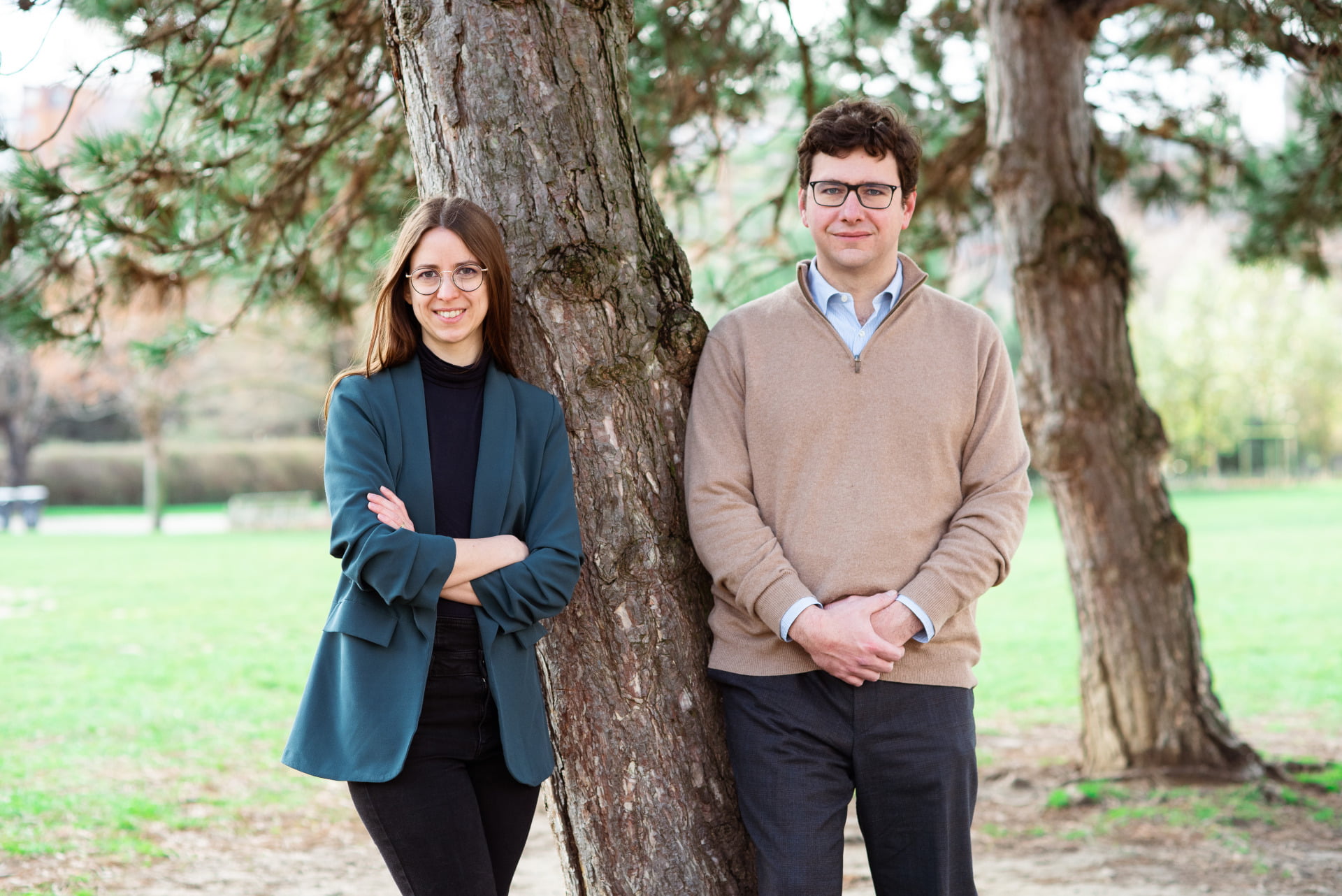The project
Why Educ-EU? Simulation games – where participants re-enact EU actors such as national governments, European Commissioners, or Members of the European Parliament in their daily debates – have been proven time and time again across the world as an effective learning method. But this type of learning experience organised in universities or institutions are still too exclusive and inaccessible for many people.
Very few people can learn from them and they are hardly available in the public sector, businesess or associations. With an immersive online platform, Educ-EU organises simulation games, conferences and courses that combine the advantages of in-person activities while avoiding the pitfalls of static webinars. These simulations are complemented by online classes and conferences and pedagogical materials.
The Educ-EU team is convinced of the added value of peer learning, and of the opportunities that an online format can bring in terms of geographical scope and accessibility – you just need the right tools!
Fun
Fun
Our platform for organising courses, conferences and simulations uses the “serious game” method: learning by having fun. Rather than reading a textbook, playing the role of ministers, MEPs or European Commissioners is fun and makes it easier to understand the complex challenges and knowledge!
Immersive
Immersive
By role-playing in an online environment similar to a video game, the participants of our courses, conferences and simulations are plunged into an atmosphere similar to that of the EU institutions. By actively participating you can’t possibly get bored!
Adaptable
Adaptable
Our virtual environment is made up of the main EU institutions (the Commission, the Parliament, and the Council) and of conference rooms. Depending on your training needs, we can adapt the virtual spaces and add several interactive teaching materials that you might need!
What we offer
EDUC-EU organises online training sessions dedicated to European affairs. They can be courses, workshops or, our speciality, EU negotiations’ simulation games!
Educ-EU listens to your training needs in European affairs and adapts to the specificities of your group, i.e., to its size, its level of knowledge of EU affairs and, its expected learning outcomes.
With you, we will choose a European topic that corresponds to your participants’ interests (e.g. finance, sustainable development, industry, legal issues) and build a training module that can range from 6 to 15 hours of training depending on whether you want to opt for a single simulation or benefit from a complete training course. The individual training time of each of the participants is added to provide a total of about 25 hours of individual training. We also provide your participants with teaching materials for the courses and the simulation.
What can EDUC-EU do for you?
EDUC-EU can help you enhance your strengths as a training institute by offering your students:
- Practical knowledge of European affairs through a serious game approach;
- A knowledge network that they can rely on to further develop their skills and their professional careers.
Educ-EU’s innovative online format gives access to a whole new range of possibilities. Students can work with their international counterparts and build new skills, encouraging them to be confident and active in their global environment, all at a reduced cost to their parent institution.
There are two key elements that Educ-EU will provide to your company:
- Reinforce the expertise of your team members on an EU topic relevant to their work;
- Foster teamwork and cooperation, for example by building links between people who work on the same team but work in different locations.
If your company works in the field of EU affairs, or on topics affected by the EU decision-making process (and there are a lot), Educ-EU can design a relevant training course tailored to your needs.
Public administrators have no choice but to follow the EU decision-making process on a daily basis to provide the public with up-to-date services and anticipate change.
Educ-EU can provide online courses that will help administrators understand the challenges and benefits of the EU decision-making process by adapting to their availability and needs.
In case of an administrative twinning (for example between two cities or two ministries from different countries), these online events can also strengthen the ties between the teams at limited costs for the administration.
Educ-EU’s serious game approach allows us to connect with citizens who feel excluded from the “EU bubble”. We chose this approach because it allows the participants to have fun, to gain confidence and to almost unconsciously acquire valuable knowledge on the mechanisms of the European institutions.
Our approach is in line with the objectives at the heart of the work of think tanks: building bridges and spreading knowledge among citizens.
The online format entails limited organisational costs (no need for a venue, travel or accommodation) for the organisers and the participants. It also allows for joint sessions with audiences across Europe, from Lisbon to Tallin and from Nicosia to Stockholm!
Just like the employees of charities and NGOs, volunteers need two key elements to stay motivated:
- The belief that they are contributing to something greater than themselves;
- The certainty that they are building useful tools for their future.
Through its online courses and simulation games, Educ-EU works with you to make sure that your members get to grips with EU affairs in order to better follow current events and identify where they come into the decision-making process.
In addition, they build a set of skills that help them be more productive in their organisation (public speaking, negotiating) and to feel more confident for their professional futures.
Journalists are so caught up in the news that it is sometimes difficult for them to take a step back and look at the bigger picture. A bespoke simulation game allows them to kill two birds with one stone:
- It can help them to understand and get a feel for the inner workings of the institutions, helping them to anticipate important news and potential developments;
- By focusing on a topic at the heart of European affairs, it can be an opportunity to ensure a comprehensive understanding of the topic at hand, and the different perspectives involved.
Educ-EU can assist you in the setting up of these activities, making full use of the potential of the online format – lower costs, greater flexibility – to best suit the needs of your team.
Platform overview
Team

A word from the founders
“The idea of creating Educ-EU was developed over the last few years as a result of the co-founders’ academic experience as well as their practical experience of EU simulation games, be it as organisers or as participants. They found that the “traditional model” of simulations, although attractive, functional and effective, was both too static in terms of exchanges (even on interactive virtual platforms such as Zoom) or still too exclusive in terms of access.”
News
Interview with Karolina Boronska-Hryniewiecka
On 1 January 2025, Poland took over the rotating six-month Presidency of the Council of the European Union. This comes at a time when both Poland and the European Union are in the process of redefining themselves and are facing several challenges. Since the victory of the Democratic Coalition in [...]
Interview with Debora Revoltella
At the beginning of September, the former President of the European Central Bank (ECB), Mario Draghi, submitted his long-awaited report on the competitiveness of the European economy to the President of the European Commission. The report's assessment of Europe's declining rate of growth and innovation is implacable and worrying, and [...]
Interview with Simon Hix
European elections have now been held across EU Member states. Against many odds, they wielded political equilibria overall comparable to the ones from 2019. Participation is only slightly higher. The EPP group came first, harvesting 26,2% of the votes (gaining 23 seats) while the S&D, losing four, is still a feeble [...]
Interview with Sara Hobolt
European elections have now been held across EU Member states. Against many odds, they wielded political equilibria overall comparable to the ones from 2019. Participation is only slightly higher. The EPP group came first, harvesting 26,2% of the votes (gaining 23 seats) while the S&D, losing four, is still a feeble [...]
Interview with Amine Tazi
Now that the European Parliament and the Council have finally reached an agreement towards the end of last year on the outlines of the new European budgetary rules, we turn towards Amine Tazi, former chief economist at the Agence France Trésor (AFT) and at the French Banking Federation (FBF) and [...]
Interview with Nicolas Tenzer
Interview with Nicolas Tenzer, expert in international affairs, teacher at Sciences Po Paris, non-resident senior fellow at the Center for European Policy Analysis (CEPA) and international political blogger on Tenzer Strategics While the conflict between Israel and Hamas has diverted the attention of Westerners, the war between Ukraine and Russia [...]
Let’s talk about it
Educ-EU
6 rue d’Armaillé, 75017, Paris, France
Stay tuned!
Join us on LinkedIn














